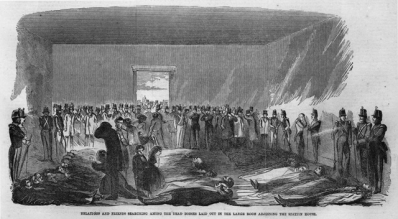All public washrooms at Barton Branch are not working. We aim to get it fixed quickly.
The Freelton Branch is open today from 9 AM to 5 PM for Extended Access only.
From March 23 until April 12, Valley Park Community Centre will be closed for renovations, reopening April 13. Pool and changerooms will remain closed until early summer 2026.
Valley Park Branch will remain open during the renovations for your library needs.
Filming will take place Mar 3-4, 7am to 11pm, at 1464 Centre Rd. This may impact traffic flow in the surrounding area.
The accessibility door at Carlisle Branch is not working. We aim to fix it quickly.
Renovation preparations are underway in anticipation of the March 2 start. Computer availability may be limited. Living Room and Makerspace areas are closed. (The next nearest Makerspaces are Sherwood and Terryberry Branches.) Renovations are expected to be completed in late Spring. Thank you for your patience.
Renovation preparations are underway in anticipation of the March 2 start. Starting the week of February 23, the 2nd Floor will be closed. The Children's collection will be temporarily available on the 1st Floor. Renovations are expected to be completed in late Spring. Thank you for your patience.
Starting Tuesday February 10, the First Floor Living Room is closed due to renovation preparations. Study and work spaces are available on Floors 2-4. Thank you for your patience.
Please note the following Bookmobile visit updates.
Friday, February 27
Winona 11:00am-12:00pm - Cancelled
Maplewood 2:30-4:00pm - Cancelled
The accessible washroom at Carlisle Branch is not working. We aim to get it fixed quickly.
Effective Sunday, February 1, Sunday service hours at Central Library will be paused.
Sunday Hours will continue at Dundas, Red Hill, Terryberry, Turner Park, Valley Park and Waterdown Branches from 1-5pm.
Desjardins Canal Disaster
Recognizing the dead

Among the most harrowing scenes attending this fearful catastrophe, are the witnessing of the unhappy relatives recognizing the mangled remains of husbands, fathers, mothers, brothers and sisters. Yesterday morning the wife of Mr. Morley arrived from St. Catharine's, to pick out of the many dead his body. The scene was heartrending as she passed from one dead body to another, all marking death with greater horrors by being more or less mangled. At last one, even more distorted and mangled than the rest, was come to; and a wild cream but too well told her tale of woe. And in a large storehouse, strewed with dead bodies, and with others going the rounds to make similar heart-rending discoveries, was she left to kneel down and bewail her bereavement. Whilst on one side of the large building a row of bodies were placed, as yet unrecognized, and questions were asked of every new comer, if he or she knew anything of them, a sob or a moan would be hears in another part, indicating that some one had come from a distance and found all her sad expectations realized.
Nor was the circumstance less harrowing, of passing the stranger by, who, far from his home, and far from those who were dreaming of his return, there lay, a mangled, unrecognized, unwept victim of a railroad disaster. Here was evidently a poor Irish labourer; his pipe was still in his hand; and a smile played over his kindly countenance. One passed, yet another, and still another, and no one knew him. God only knew the grief that some would feel who did know him. Here again linger a larger group. They are looking at the figure of a woman, once beautiful, and though her hair lies tangled and wet, and her face is distorted from the effects of drowning, she still chains that idle crowd with a melancholy interest. She has a marriage ring on her finger. Two lockets are on her breast; and a brooch is suspended by a yellow ribbon round her neck. For whom did she wear them? Who were dear to her? To whom was she dear? No one knew her. God help her! she alone then required to be but recognized by him! And so passed the scene. Here a moan and a tear marked the recognition of the mangled remains of a friend or a relation. There strangers, with heavy hearts, gazed on those who were unwept; and though of themselves, if ever such a lot should be theirs. There may be scenes of sorrow and of horror, but who can conceive aught so utterly heart-rending, as when people go away in peace and happiness, to return this evening, or to-morrow, and are first heard of as mangled by drowned by such disaster.












